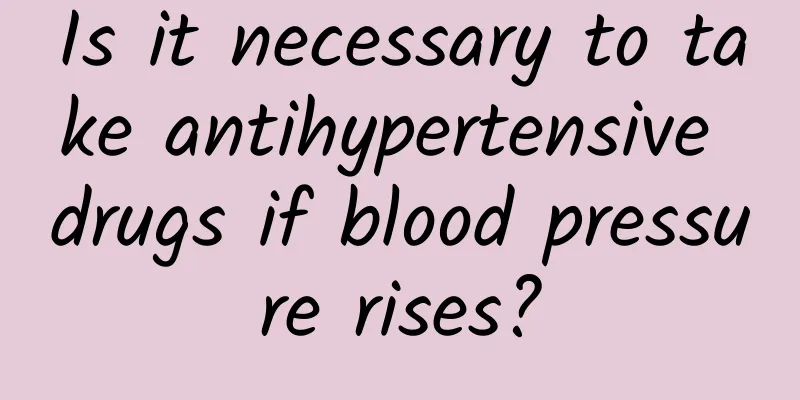Is it necessary to take antihypertensive drugs if blood pressure rises?

|
In recent days, I always encounter a young man at the triage desk. He starts taking off his coat as soon as he enters the room, stretches out his arms, sits down and says to me: "Nurse, take my blood pressure." When I met him for the fourth time, he came over with a blood pressure monitor in his hand and took his blood pressure as usual - 165/101mmHg. Out of curiosity, I took his blood pressure sheet. Except at night, his systolic blood pressure was basically above 140mmHg, and the highest could reach 170mmHg. He said he had just come from the cardiovascular department, but the doctor did not prescribe him antihypertensive drugs. He asked me if my blood pressure was so high, did I really not need medication? Whether or not high blood pressure requires antihypertensive medication depends on many factors, including the accuracy of blood pressure measurement, the patient's overall health, and whether there is cardiovascular risk. Before deciding whether to use antihypertensive drugs, doctors usually consider the patient's clinical condition and may recommend lifestyle adjustments for a period of time to observe their effects before making a decision. For patients with mild hypertension, doctors generally recommend non-drug treatment measures first, such as improving lifestyle habits, including low-salt diet (it is recommended that daily salt intake should not exceed 5g, about the same as a beer bottle cap), quitting smoking and limiting alcohol, exercising moderately, controlling weight and maintaining a regular work and rest schedule, etc. These measures can help lower blood pressure and reduce cardiovascular risks. If your blood pressure continues to rise after a period of lifestyle adjustments, or if you have symptoms such as dizziness, headache, nausea, etc., and these symptoms have affected your normal life, then you need to go to the hospital and use antihypertensive drugs for treatment under the guidance of a doctor. □ Pan Jingcheng, head nurse of the emergency department of Wenzhou People’s Hospital and Wenzhou Maternal and Child Health Hospital |
<<: Migraine frequency can be reduced by more than 50% through medication and lifestyle adjustments
>>: Chest pain = breast cancer? Learn about 7 possible causes of breast pain
Recommend
An 11-year-old child has severe liver cirrhosis! Be careful of these diseases caused by eating
Can you imagine an 11-year-old child being diagno...
Can pregnant women eat salted duck eggs?
Salted duck eggs are a common food, and you can c...
What causes women's calf swelling?
Calf pain is a phenomenon that exists in both men...
Causes of kidney deficiency and blood stasis in women
Kidney deficiency and blood stasis are actually q...
What causes lower abdominal and back pain?
There are many reasons for lower abdominal and lo...
Four major parts of female reproductive plastic surgery
Female reproductive plastic surgery is divided in...
What is the treatment for plasma cell mastitis?
Female breast disease is a disease with a high in...
Medical experts talk about popular science | Go away, tumor - "magic hands" radiotherapy allows patients with localized advanced cervical cancer to regain new life
Cervical cancer is the second most common maligna...
Can I open the window for ventilation during confinement?
Pregnant women need to take good care of their bo...
What causes breast lumps?
Many female friends are very concerned about the ...
What to do if your vagina smells a bit
Every man doesn't like his woman to have a bo...
It's not the menstrual period.
When women have their period, the amount of bleed...
Look! These seven high-risk groups are most likely to be affected by chronic kidney disease!
Among all kinds of diseases, chronic kidney disea...
Severe dysmenorrhea after transplantation
After the transplant operation, many female frien...
What if my girlfriend's period is delayed for a week?
Delayed menstruation is a very common physiologic...









